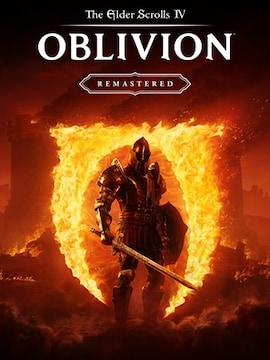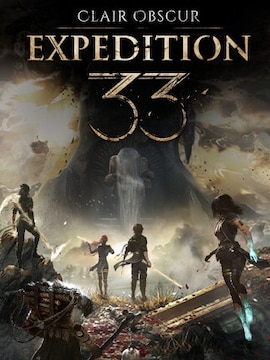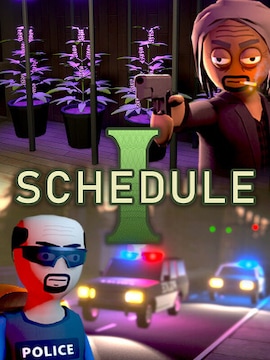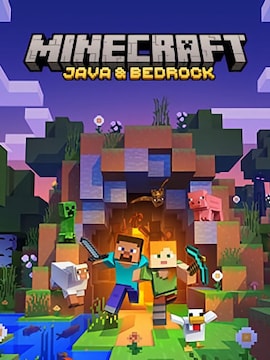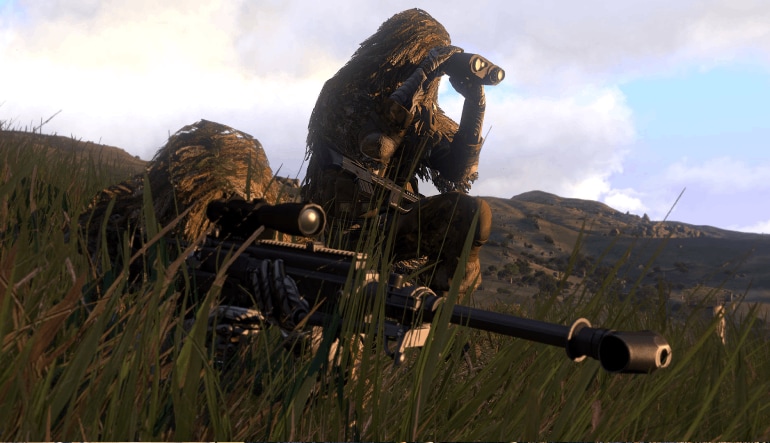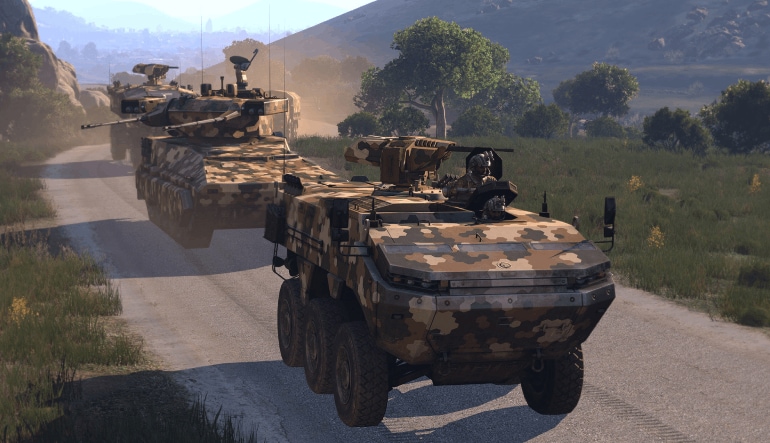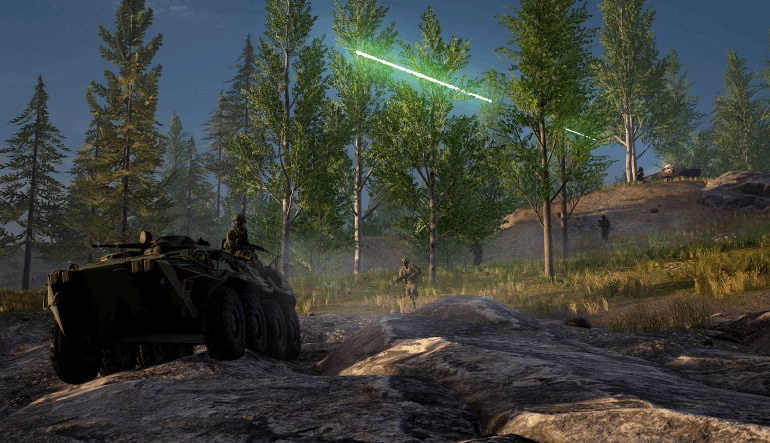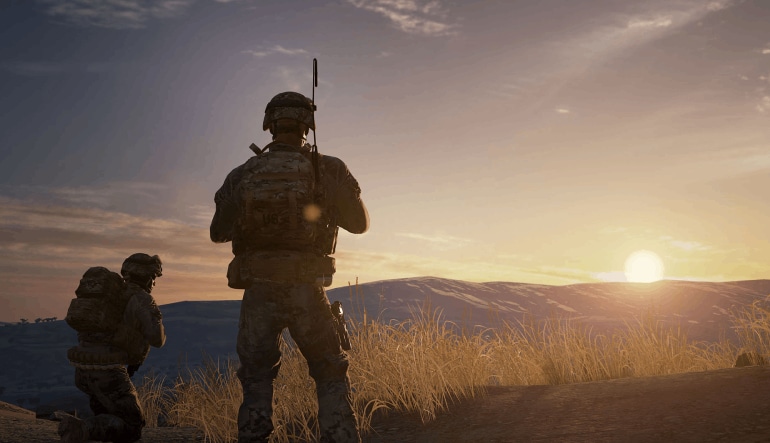They say war never changes, but what if it does? It turns out that how video games use military history noticeably varies.
Descriptions of military computer games are often full of these two words – historical accuracy.
That sounds like some promise that the chosen title will faithfully reflect the realities of war to the slightest degree, but is that really the case? To what extent can games reflect the realities of war, and which ones do it best?
| Game | Release | Genre | Developer | |
|---|---|---|---|---|
 | Verdun | 2015-04-28 | Action & Shooter | M2H |
 | War Of Rights | 2018-12-03 | Indie | Campfire Games |
 | Rising Storm 2 Vietnam | 2017-05-30 | Action & Shooter | Antimatter Games |
 | Ground Branch | 2018-08-14 | Indie | BlackFoot Studios |
 | Arma 3 Digital Deluxe Edition | 2013-09-12 | Strategy | Bohemia Interactive |
 | Squad | 2015-12-14 | Action & Shooter | Offworld Industries |
 | Escape From Tarkov | 2017-07-27 | Shooter | Battlestate Games Ltd. |
 | Hell Let Loose | 2019-06-06 | Indie | Team17 |
 | Insurgency Sandstorm | 2018-12-12 | Action | New World Interactive |
 | Gray Zone Warfare Standard Edition | 2024-04-30 | Coop shooter | MADFINGER Games |
Historical Accuracy and Research
Once upon a time, Kevin O’Neill and Bill Feenstra conducted a study on players’ trust in historical authenticity in computer games.
Participants between the ages of 18 and 30 were asked to play Medal of Honor: Frontline and, depending on their type of historical knowledge and how often they played per week, decide whether the game taught them anything new about history. Surprisingly, everyone answered ‘no’ or ‘not really.’ Researchers found participants could recognize the commercial nature of a game and stay quite suspicious of its historical accuracy.
One commented on the study: ‘Honestly, I would stick with the books. The games can alter anything, but you cannot alter history.’
What does this mean for the purpose of our article? Well, we should delve further into the details. A war video game puts its players in the shoes of a leader or humble soldier during the conflict – imagined or real. The crucial question here is how it does it. Let’s take a look at the first example – Stronghold Crusader.
It is a classic, easy-to-learn strategy title set at the turn of the 11th and 14th centuries, with the action taking place in desert areas. The setting is somewhat accurate, but most details, like the range of crossbows and the use of plates, don’t make sense from the historical point of view.
Another example is first-person shooters. Anyone who has ever seen real war footage knows well that FPS games have nothing to do with reality despite the significant focus on a realistic experience.
Sure, titles like Call of Duty often implement historically accurate settings, weapons, vehicles, and uniforms – but is that enough for a comprehensive experience?
A real war does not let its participants know how many companions are left alive or where forces are located on the map. Moreover, it does not even allow you to be sure whether there are any enemy forces remaining and who exactly you are shooting at. It is where we can clearly state that video games capture the essence of the military past through inspiration.
How we don’t really need historical accuracy
So we already know war games may lack the psychological or tactical aspect provided by real-life conflict – but they draw inspiration from military knowledge and past strategies. Is this a bad thing? Let’s imagine a perfectly accurate game set, for example, during World War II.
If the title were as militarily realistic as possible, the regular player’s essential job would probably be to sit in a foxhole and wait for potential orders for hours and days, possibly dying of hunger, cold, or random shrapnel.
That’s it. Meanwhile, most military-inspired games allow players to play the vital roles of leader, gunner, or guerrilla for one crucial goal – to keep them interested.
It isn’t even about the developers and the fact that making a military-accurate game would be incredibly difficult. It’s not even about the game having to reach as broad an audience as possible to sell.
Despite frequent criticism of some titles by history and military enthusiasts, players do not really want to experience life-like war events, picking coherent stories and historical authenticity over strict historical accuracy. That means they prioritize fun and educational gameplay mechanics over perfect academic precision.
Immersive Learning Experience
All this does not mean, of course, that no titles make realism their flagship feature. Regarding military accuracy, the ARMA series does a great job of providing realistic strategies and procedures.
Similar to military vehicle simulators like Digital Combat Simulator, IL-2 Sturmovik, Gunner, HEAT, PC! or Steel Beasts. They all deliver immersive learning experiences focusing on technical precision and player freedom.
There are also titles used in real army training like World of Tanks, Full Spectrum Warrior, or — quite surprisingly — Duck Hunt.
Their goal is to train troops in decision-making, teamwork skills, and critical thinking – extremely important during real-life military procedures. Therefore, even die-hard military enthusiasts can discover something for themselves in the gaming world without worrying about real-life injuries resulting from brutal confrontations.
Conclusion
We already know games capture the essence of military history through inspiration. Depending on the developers’ initial plan and players’ expectations, it happens to a greater or lesser extent. Titles, like the Assassin’s Creed series, fit combat and historical details into the overall plot quite loosely.
On the other hand, tank simulators like Steel Beasts are an excellent learning tool for military enthusiasts. Ultimately, no video game can fully reflect the realities of war one hundred percent – and that’s a good thing because we don’t want that. Even the most realistic titles allow us to use vehicles, weapons, and tools used by the armies of this world, preferably as authentic as possible, to provide fun.
Sometimes, it is the joy of unforgiving combat, sometimes of flying a dream plane. Very often, it is the opportunity to fight in a historical conflict, enriched with some engaging, not-so-precise plot.
The way games capture the essence of the military doesn’t really matter as long as we, as gamers, can recognize their entertaining nature.

